Get the latest financial news, insights and expert analysis from our award-winning MoneyWeek team, to help you understand what really matters when it comes to your finances.
You are now subscribed
Your newsletter sign-up was successful
Want to add more newsletters?

Twice daily
MoneyWeek
Get the latest financial news, insights and expert analysis from our award-winning MoneyWeek team, to help you understand what really matters when it comes to your finances.

Four times a week
Look After My Bills
Sign up to our free money-saving newsletter, filled with the latest news and expert advice to help you find the best tips and deals for managing your bills. Start saving today!
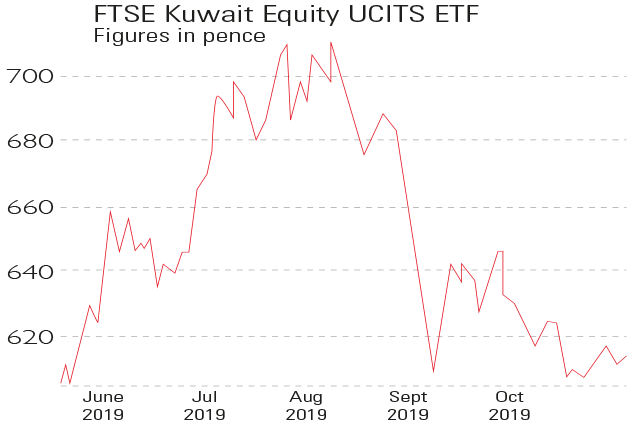
The KMEFIC FTSE Kuwait Equity UCITS ETF (LSE: KUWP) has made little progress since HANetf launched it in London earlier this year. But that could soon change. Kuwait is due to be promoted from a "frontier" market to an emerging one by index provider MSCI next June. That should entice almost $10bn of global investors' cash into the market, reckons HANetf.
The overall market capitalisation of the local index is only around $30bn. Meanwhile, Kuwait has the world's sixth-largest oil reserves, but is sensibly diversifying in an effort to become a regional commercial and financial hub. The ETF, which tracks the FTSE Kuwait All-Cap 15% Capped index comprising small, mid and large caps, has low exposure to oil.
Viewpoint
MoneyWeek
Subscribe to MoneyWeek today and get your first six magazine issues absolutely FREE

Sign up to Money Morning
Don't miss the latest investment and personal finances news, market analysis, plus money-saving tips with our free twice-daily newsletter
Don't miss the latest investment and personal finances news, market analysis, plus money-saving tips with our free twice-daily newsletter
"[Last week] talk of the Dow Jones... at 30,000 didn't seem so fanciful as when Barron's suggested it in January 2017, as the blue chips hit 20,000... the global economic backdrop has, for the first time in 18 months, begun to improve', writes Michael Pearce [of] Capital Economics. It's not just because of prospects of a trade deal. Recession risks have, well, receded. Growth may slow to a 1% annual rate in the current quarter, but odds of falling into an outright recession have slid... the risks from financial excesses still appear moderate, according to Goldman Sachs economist David Mericle. Commercial real-estate risks have eased, helped by slower price appreciation and better rents. Corporate debt is high, compared with GDP, but a better comparison is debt versus earnings and assets. Those metrics are not at alarming levels, even for high-yield issuers."
Randall Forsyth, Barron's
Get the latest financial news, insights and expert analysis from our award-winning MoneyWeek team, to help you understand what really matters when it comes to your finances.
MoneyWeek is written by a team of experienced and award-winning journalists, plus expert columnists. As well as daily digital news and features, MoneyWeek also publishes a weekly magazine, covering investing and personal finance. From share tips, pensions, gold to practical investment tips - we provide a round-up to help you make money and keep it.
-
 Can mining stocks deliver golden gains?
Can mining stocks deliver golden gains?With gold and silver prices having outperformed the stock markets last year, mining stocks can be an effective, if volatile, means of gaining exposure
-
 8 ways the ‘sandwich generation’ can protect wealth
8 ways the ‘sandwich generation’ can protect wealthPeople squeezed between caring for ageing parents and adult children or younger grandchildren – known as the ‘sandwich generation’ – are at risk of neglecting their own financial planning. Here’s how to protect yourself and your loved ones’ wealth.
-
 What would the greatest mathematician of the Middle Ages say about gold today?
What would the greatest mathematician of the Middle Ages say about gold today?Sponsored Italian mathematician Fibonacci is most famous for a curious sequence of numbers. Continuing his series on technical analysis, Dominic Frisby explains what these numbers are, and what they can tell us about gold’s next move.
-
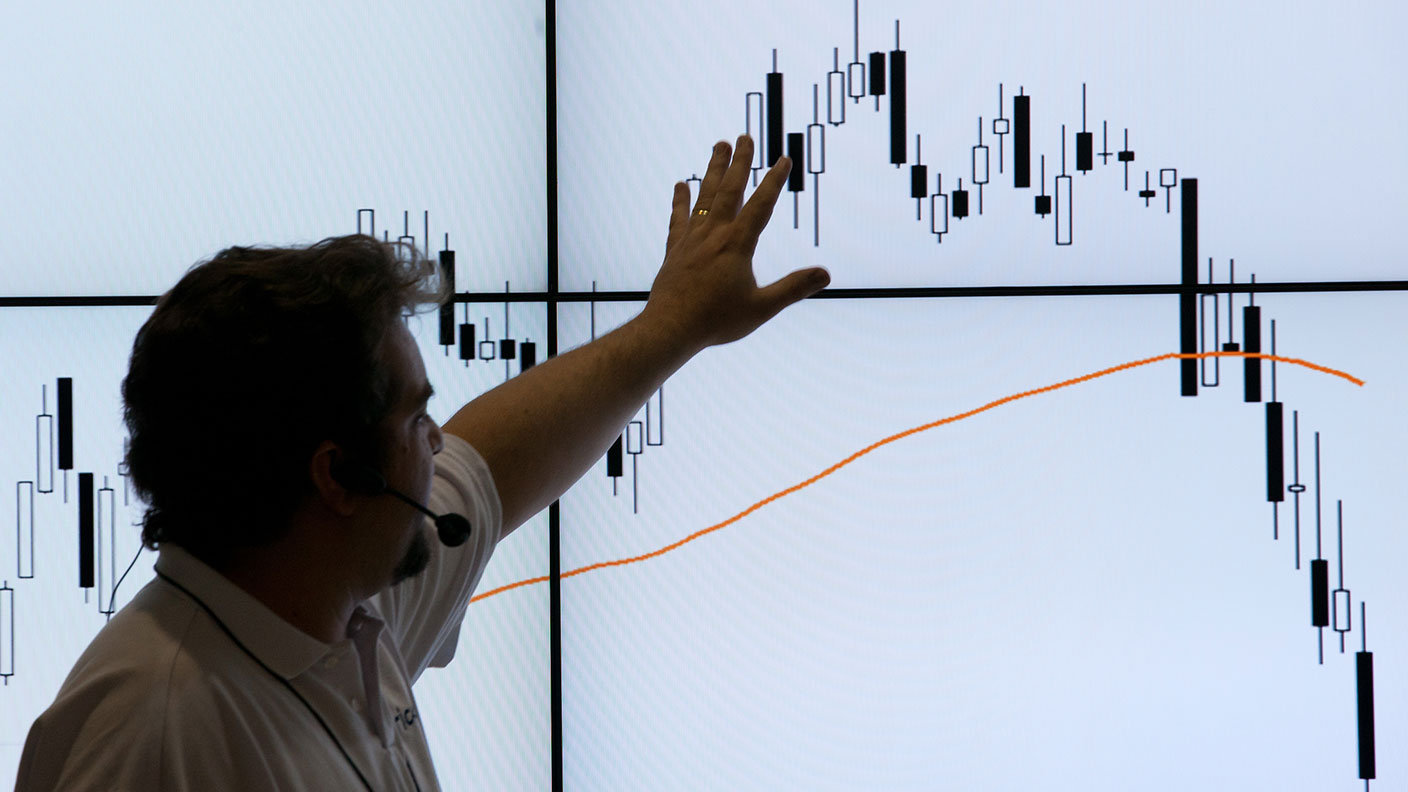 How moving averages can reveal trades worth betting on – and ones to avoid
How moving averages can reveal trades worth betting on – and ones to avoidSponsored Dominic Frisby looks in more depth at how moving averages can help you catch turning points in markets and help you decide which trades are worth pursuing.
-
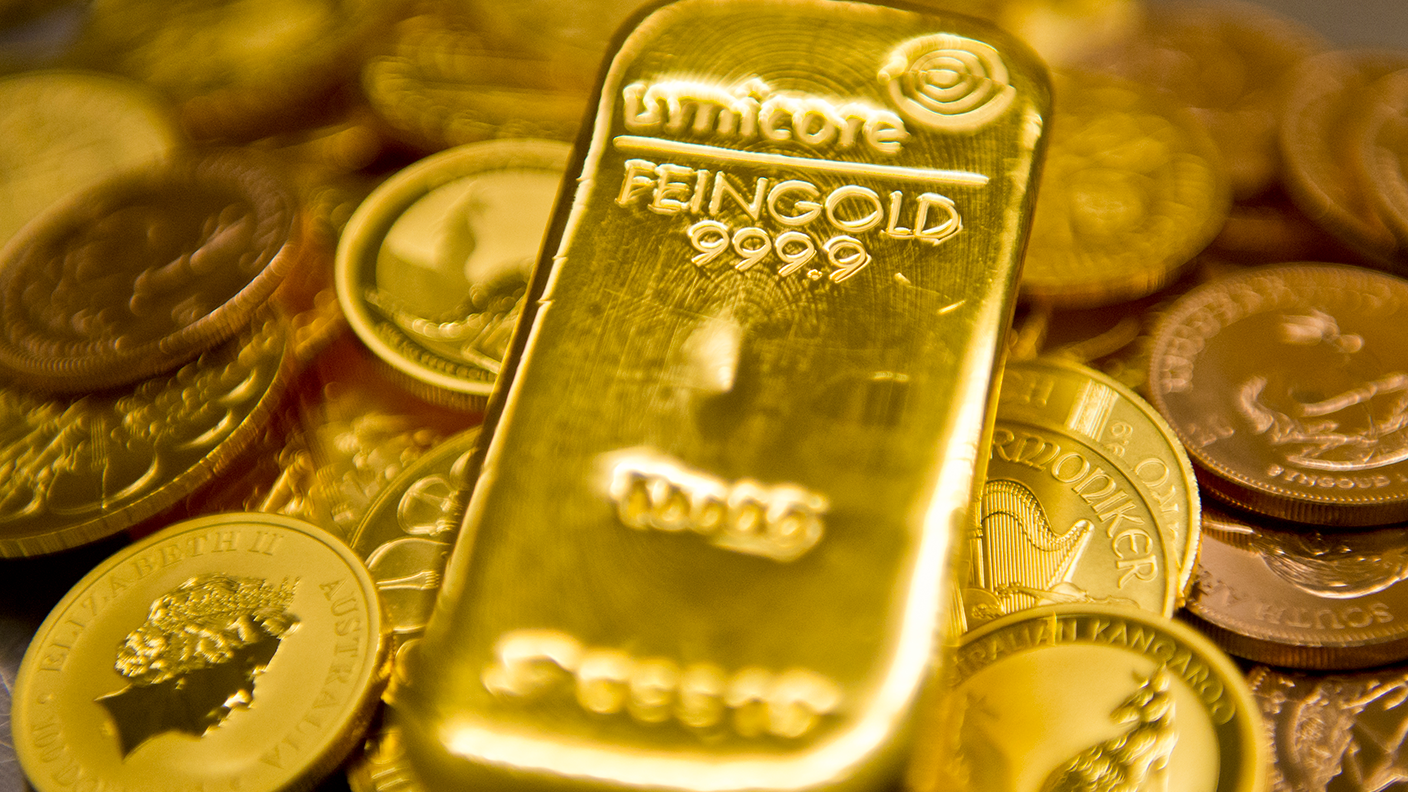 This chart pattern could be extraordinarily bullish for gold
This chart pattern could be extraordinarily bullish for goldCharts The mother of all patterns is developing in the gold charts, says Dominic Frisby. And if everything plays out well, gold could hit a price that investors could retire on.
-
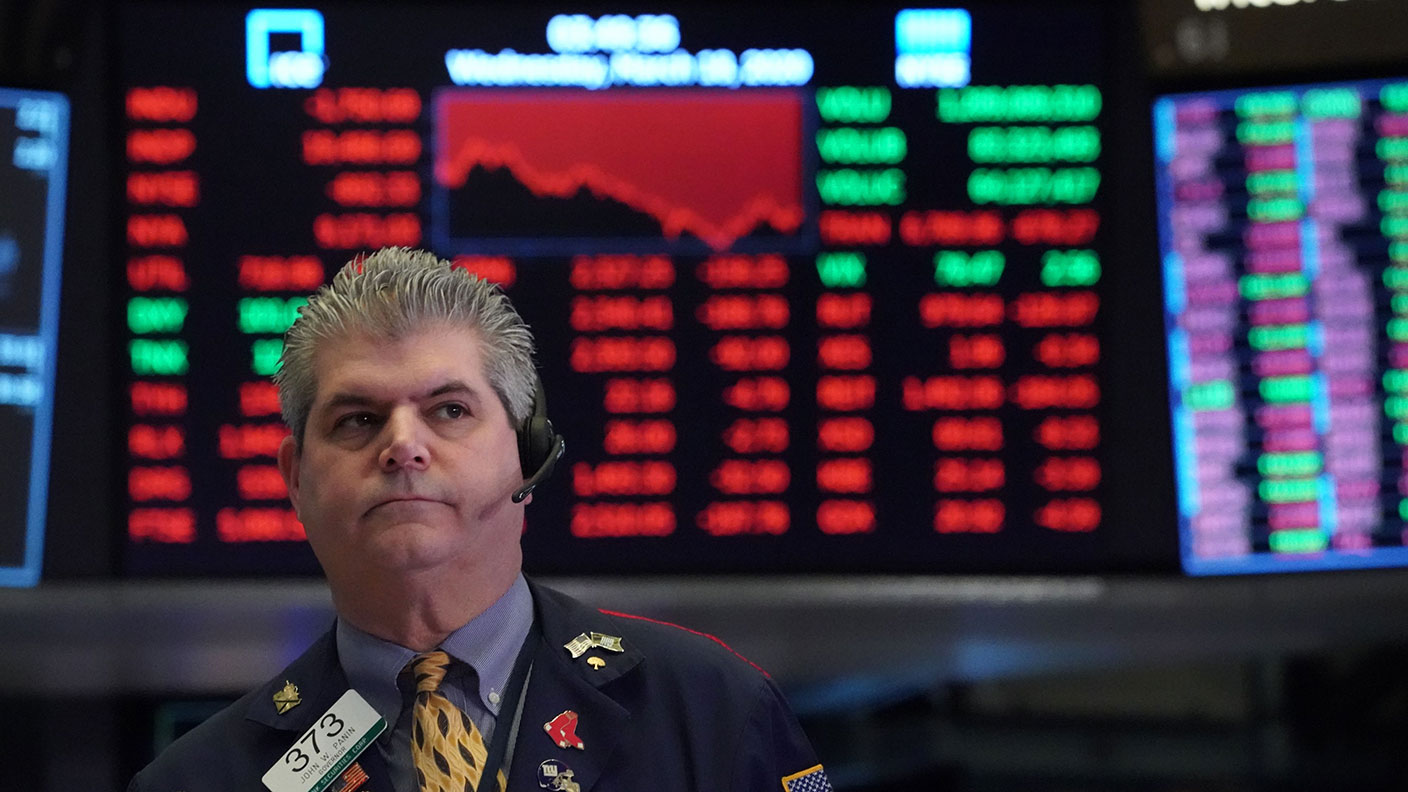 Believe it or not, this market is a “buy”
Believe it or not, this market is a “buy”Charts With the world in the state it’s in and the market so volatile, buying stocks right now might go against all your instincts. But that’s just what you should be doing, says Dominic Frisby. Here, he explains why.
-
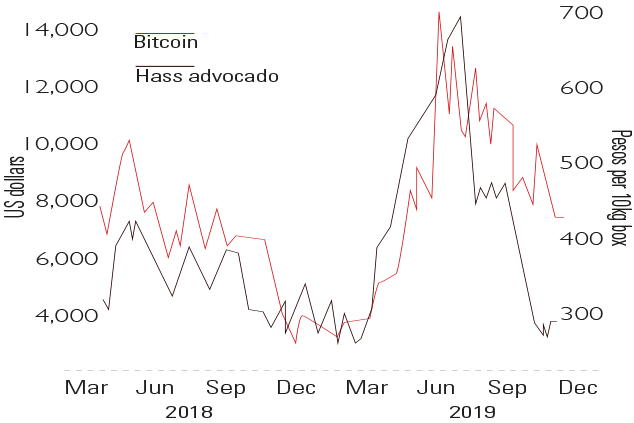 Chart of the week: avocados and bitcoin are in sync
Chart of the week: avocados and bitcoin are in syncCharts An amusing new spurious correlation has been spotted between the price of bitcoin and Mexican Hass avocados. In reality, of course, they have nothing to do with each other beyond “superficial price action”.
-
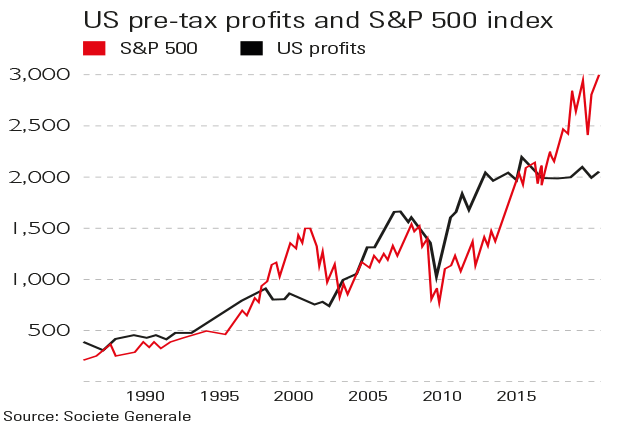 Chart of the week: US stocks outrun profits
Chart of the week: US stocks outrun profitsCharts The US stockmarket has become totally detached from underlying profits of its constituent companies over the past three years.
-
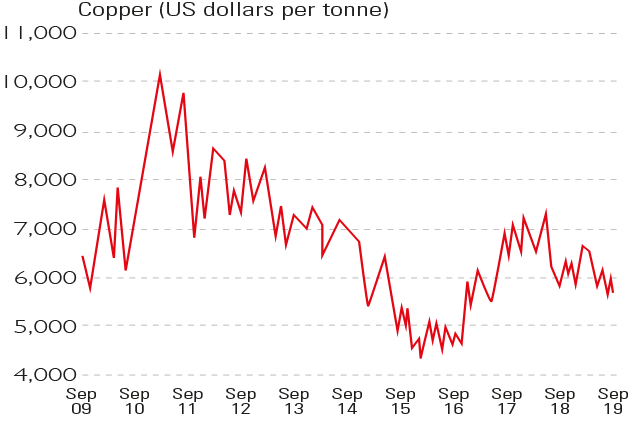 Chart of the week: Dr Copper diagnoses an ailing economy
Chart of the week: Dr Copper diagnoses an ailing economyCharts The price of copper has slipped by a fifth this year and is now at a near-two-year low of around $5,600 a tonne.
-
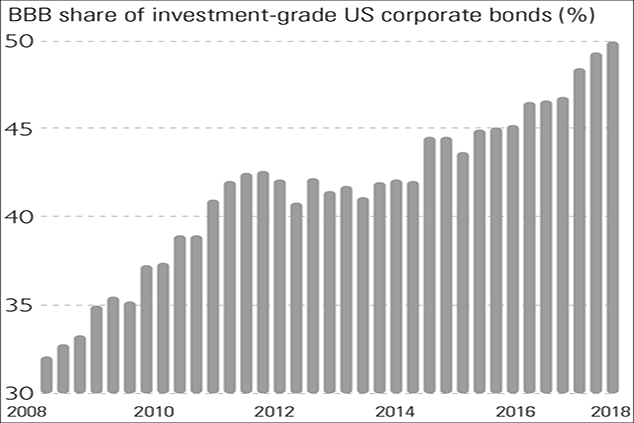 Chart of the week: America’s corporate debt binge
Chart of the week: America’s corporate debt bingeCharts US households have spent much of the past decade deleveraging. Companies haven’t as this chart shows.

